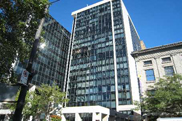
TFSAs have been a welcome addition to the tax shelter landscape in Canada, but they leave something to be desired for those with substantial assets and maxed out RRSP and TFSA room.
Ontario’s Real estate investment is often overlooked in the quest for tax reduction and deferral, let alone income generation and inflation protection. If real estate is all of these things, why doesn’t everyone own a rental property? The answer is simple – money.
It’s not that investors don’t have the money to get into the rental property market, because this can be easily accomplished with leverage and minimal monthly carrying costs. The problem is there is simply no money to be made by financial professionals when it comes to rental real estate. The result is that rental real estate is a secret tax shelter that few people ever consider.
“What the game of Monopoly tells us, contrary to its inventor’s intentions, is that it’s smart to own property.”
First, a lesson in rental real estate taxation. Rental income is taxable and rental expenses, including mortgage or line of credit interest, are tax-deductible. In many cases, if a property is financed, it will run at a loss for tax purposes creating a tax deduction against all other sources of income and therefore, a tax refund. In the meantime, real estate values grow tax-deferred until an eventual sale. Even if a property runs at positive cash flow for tax purposes, depreciation can be claimed to wipe out some or all of the taxable income inclusion.
Rental real estate has been described by some as the equivalent of a super-charged RRSP. What is a traditional RRSP? It’s a tax-deferred savings vehicle; contributions are tax-deductible; it provides a future income stream; and it’s an investment asset. Rental real estate incorporates all of these features, plus there’s no pre-determined maximum tax deduction limit like with RRSPs; withdrawals aren’t forced at age 71 like with RRIFs; contributions can be financed and the interest can be deducted, unlike RRSP loans; and the taxes paid on selling a rental property are at the 50% capital gains tax rate, unlike RRSP withdrawals which are fully taxable.
The Harvard and Yale endowment funds have more than 50% of their assets invested in non-traditional asset classes, like real estate. The Ontario Teacher’s Pension Plan, the largest single-profession pension plan in Canada, has 18% of their pension assets invested in real estate. Maybe Harvard, Yale and the OTTP know something the mainstream investment community doesn’t know.
So lets do what they do and go have a drink and enjoy some prize Ontario real estate!
To learn how YOU can own a cottage in Prince Edward County register now.
